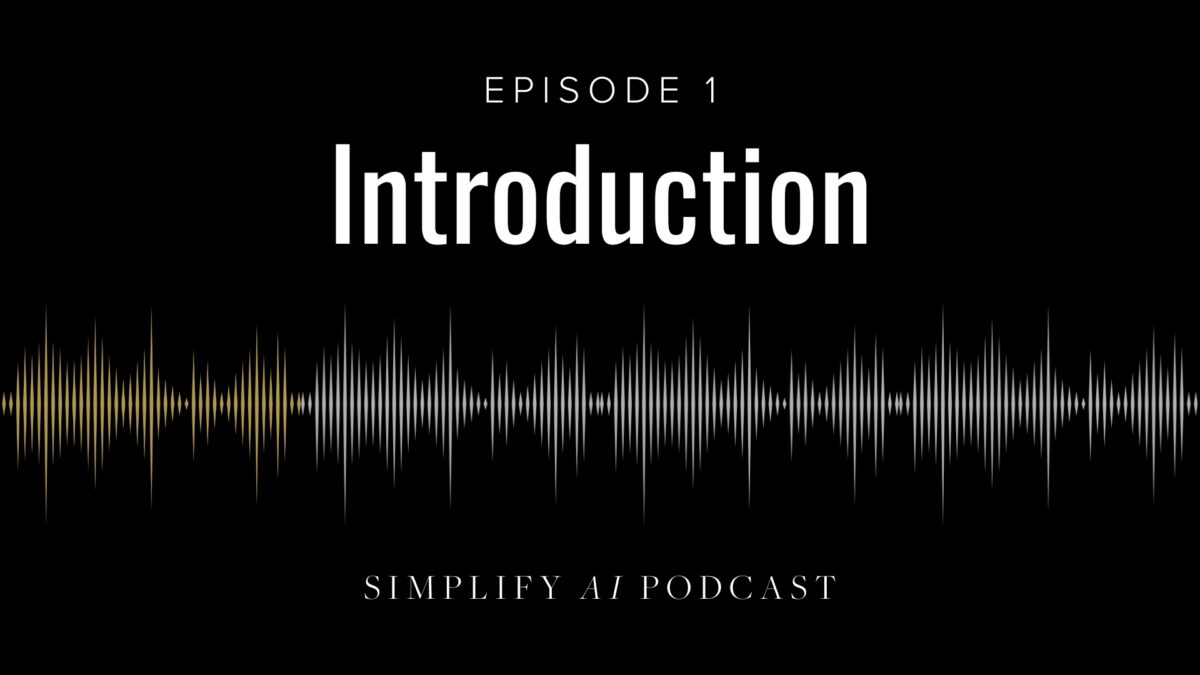Introduction

In this first episode of Simplify AI Podcast, brother-sister team Stephen Bradley and Rebecca Bradley share their personal stories of how they went from curious beginners to confident users with ChatGPT.
This episode takes a closer look at the ripple effects of Artificial Intelligence (AI), the unexpected and surprising ways it’s changing how we work and live, and how learning to use AI is simpler than you might think (even if tech isn’t your thing).
The podcast opens with a relatable, real-world perspective on artificial intelligence, not from seasoned tech experts, but from two people who started out with questions, hesitations, and a lot of curiosity. Their journey reflects what many in the FE and skills sector are currently facing – how to make sense of rapid technological change and what it means for learners, educators, training providers and employers who are striving to adapt and thrive in this evolving landscape.
As AI becomes embedded across a wide range of sectors, from education to engineering to healthcare, there is a growing urgency to develop what many now call AI fluency – a foundational skill like literacy or numeracy. This episode highlights how accessible that can be, especially when introduced in a human and supportive way. It is particularly relevant for those working with NEETs or adult returners, where confidence with digital tools can often be low, but the potential impact of AI is significantly high.
For FE colleges, independent training providers, and awarding organisations, the conversation sets the tone for a bigger discussion: how do we equip people – not just students but staff – with the everyday skills to understand and apply AI meaningfully in their lives and industry? And how do we ensure that AI is demystified rather than feared, especially by those who feel they’re “not technical enough”?
Rebecca and Stephen also touch on the pace of change, the risks of being left behind, and the widening gap between those who are using AI to save time, cut costs, and enhance their work – and those who aren’t. They make the case that now is the moment to lean in, especially for those in learning and development, employer engagement, and EdTech.
This is a warm, welcoming introduction to a technology that’s often made to feel out of reach. For futurists, economists, and education leaders alike, it’s a powerful reminder: AI is about people, possibility, and the skills we build next.










Responses